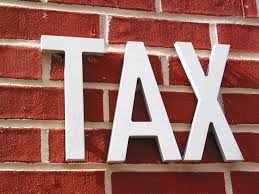One of the most offensive aspects of Property Taxes is the way they penalize homeowners for improving their homes, said an IRS audit defense lawyer in Louisiana. These improvements may not be resold, and they are punished by property taxes. The best way to combat this is to avoid making home improvements altogether. In fact,  you can make a lot of improvements to your house without paying any tax at all. And, while this approach may seem extreme, it is also the most effective.
you can make a lot of improvements to your house without paying any tax at all. And, while this approach may seem extreme, it is also the most effective.
The nature of property taxes depends on the type of property involved. This is usually land, with improvements. An improvement is any immovable man-made object placed on it. This is often mistaken for a special assessment tax, which relies on a special enhancement. In either case, the taxes are based on fair market value. Despite this, property taxes are often not completely free. In some cases, they can be oppressive, but the government needs them in order to protect their land and homes.
Aside from land, property taxes also affect improvements to land. Improvements on land include buildings, fences, and other intangible objects. In many states, both of these types of property are subject to property taxes. In Georgia, for example, a tax on improvements includes personal property. The tax is known as an ad valorem tax, which relies on the fair market value of the property to determine the amount of the tax due.
While the nature of property taxes can be problematic, there are some ways to minimize their impact. The first thing to consider is the fact that property taxes are not directly linked to income, and are therefore insensitive to drastic changes in a person’s financial situation. As such, a home’s value is not the best indicator of real taxable income in a community. This makes it very hard to calculate how much tax you need to pay for your home.
As previously mentioned, property taxes are based on the value of a home. While the value of a home is important, it is not an accurate representation of taxable income in a community. This is why property taxes are an excellent way to measure the value of a home. If the value is high enough, they can even affect the value of a house. So, be sure to take property taxes into consideration before making your next purchase.
Property tax exemptions are a key component of property taxes. Nonprofits generally don’t pay any local property taxes, but they are often exempted from state and federal government real estate. In some communities, the value of such properties is low. This is because the land in these neighborhoods is valuable and the taxes are a necessary part of that value. If you are considering a home purchase, this is a great time to make the most of it.